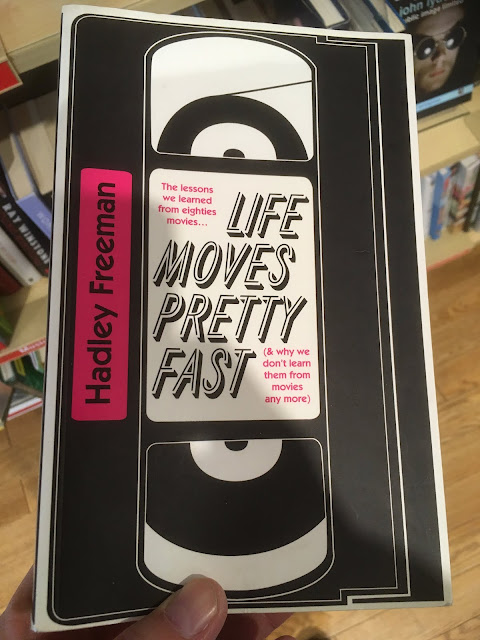Hadley Freeman sees the 1980s as an unheralded golden era of film. Much of the appeal of this book is that it falls somewhere between a chatty, journalistic style of writing and a serious work of film studies. In the interesting introduction, she argues that since the big corporate buy-outs of the studios, film-making has become more formulaic and conservative, with few strong roles for women. I'm not entirely convinced by this. What about Sandra Bullock in Gravity? What about Jennifer Lawrence in The Silver Linings Playbook and The Hunger Games? She also uses the example of the Star Wars prequels being far worse than the 1977–83 originals, which they were, but 2015's Star Wars Episode VII is both a great film and one with a strong female lead. OK, this came out after the book was published, but it does suggest flaws in her theory. I think it's more the case that there have always been great and terrible films made in every decade. But it was good to read a positive reassessment of the 1980s, and I agree with most of her critiques of the films themselves. It’s hard to disagree with her observation that films are now designed to work internationally: nuanced dialogue doesn't translate in the way that helicopter explosions do.
One thing that didn't work so well was her top 10s. These seemed quickly and carelessly thrown together after the well-argued chapters. For example, some of the songs in her top 10 power ballads aren't even power ballads, while she overlooks a song such as Berlin's "Take My Breath Away", which was. Otherwise, an excellent book.
17/08/16: Sam Knee – Classic Rock T-shirts: Over 400 Vintage Tees from the '70s and '80s (2011)
Worth knowing that this is an abridged version of the 2006 book Vintage T-shirts: 500 Authentic Tees from the '70s and '80s. So this edition has fewer shirts. Perhaps it's that cutting-down process that explains the slightly arbitrary-seeming selection. Some silly errors could have been avoided. Metallica's Ride the Lightning is spelled as Ride the Lightening twice, despite the correct title being shown in the picture of the shirt itself. Also, a David Bowie T-shirt is captioned as being from the Station to Station era (1976), but clearly shows the Young Americans (1975) cover image. Despite that, the pictures of old T-shirts are fascinating, and the interviews with a handful of collectors are fairly entertaining. I would have liked more of the latter, and more detailed Q&As, as this extra context enriches the selection of photos. Those comments aside, this book is a pleasure to flick through and well worth a look.
Subscribe to:
Comments (Atom)

